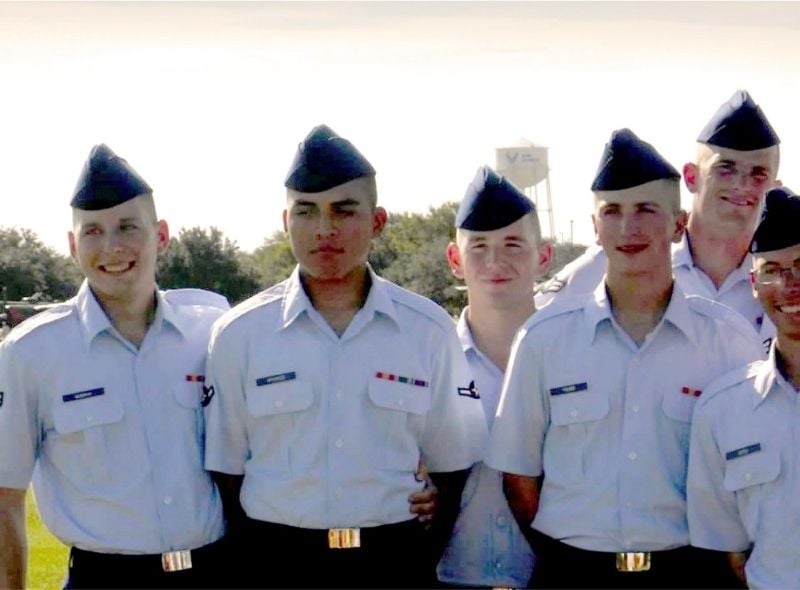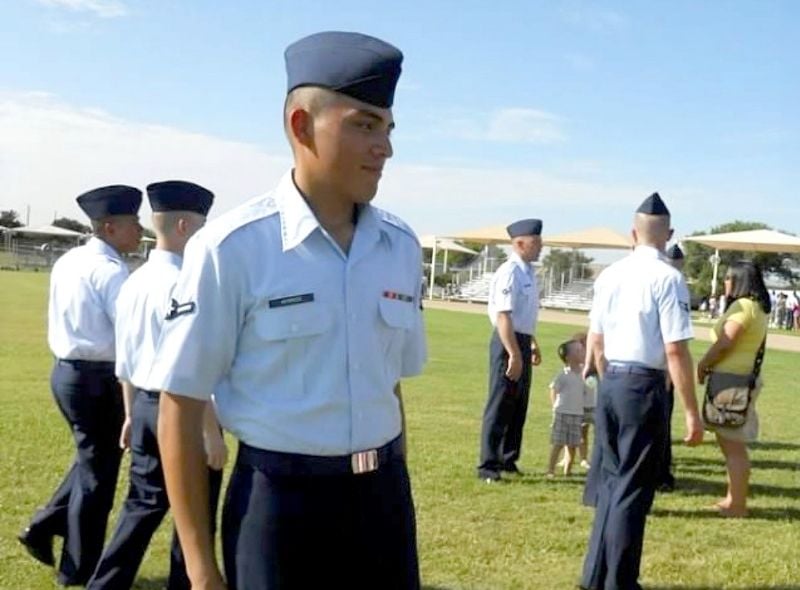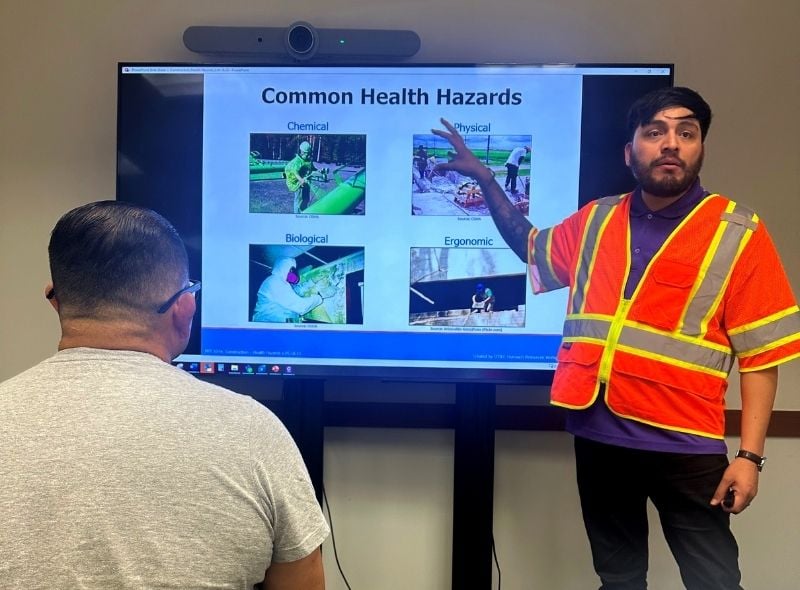A former Air Force Aircrew Flight Equipment specialist, now a safety trainer on our Purple Line Rail project in Maryland. Philip Aparicio’s journey is a testament to the strengths veterans bring to the civilian workforce, especially in fields like safety and human resources.
As a child, Philip gazed out airplane windows, dreaming he could collect clouds in a jar. That curiosity and wonder led him to the Air Force, where he not only chased clouds but also got to take controls of a T-38, a twin-engine, high-altitude, supersonic jet trainer, at just 18 years old. His role as an Aircrew Flight Equipment specialist was critical: he maintained and serviced the life support equipment—oxygen systems, parachutes, night vision goggles and more—that pilots depend on every mission.
Philip’s military training instilled in him the importance of thinking independently and mastering emotional control. These lessons became the bedrock of his approach to safety and HR—fields where calm, logical decision-making is essential.
Transitioning to civilian life wasn’t without its hurdles. Philip quickly noticed a major difference: emotion-based communication in the civilian world versus the logic and goal-oriented communication of the military. He learned to adapt, developing patience and honing his ability to “zoom out” and see situations from multiple perspectives.
Philip credits his Air Force experience for the habits that make him an effective safety trainer today:
- Observation and Listening: “Always observe, listen, pay attention to sequences and patterns.”
- Trust but Verify: There’s often a gap between what people say and what they do.
- Problem-Solving: Focus on solutions, not just repeating problems.
- Confidence Under Pressure: Years of training have made him unflappable, even when dealing with difficult personalities.
Veterans like Philip bring a direct, goal-oriented approach to their work. They’re used to taking clear orders and getting things done, sometimes misunderstood in environments where indirect communication is the norm.
Philip’s message to veterans considering a transition to human resources or safety is clear: “You need to learn how to communicate with civilians. It’ll be difficult to connect with them if you treat them like other military members.” Adaptability, empathy and a willingness to learn new ways of connecting are key.
Philip wishes more people understood that every veteran brings a unique perspective shaped by their experiences. “We’re all living in our own reality tunnel,” he says. The ability to step back and see beyond your own beliefs is a skill veterans can teach us all.
On National Hire a Veteran Day, we’re proud to highlight the experience, resilience and leadership veterans like Philip bring to our teams.



